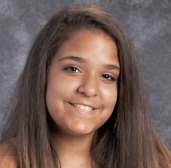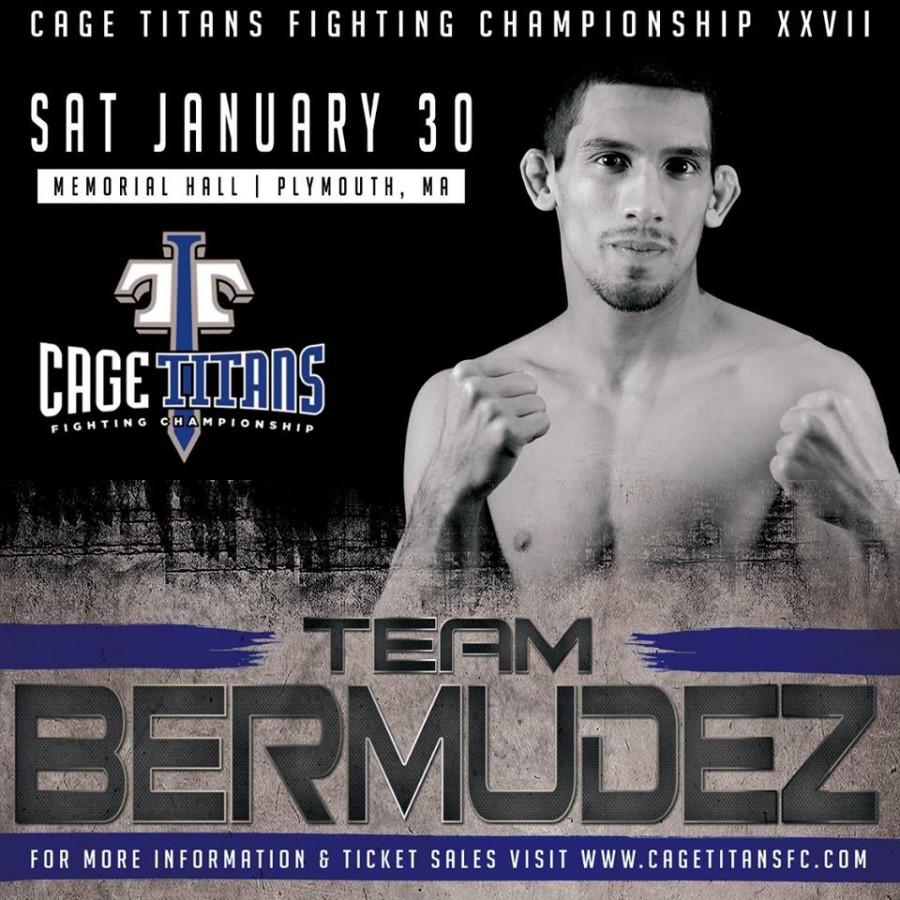Ultimate Manny
Hard Working MMA Fighter Bermudez is a Pro
Manny Bermudez
Manny Bermudez (Class of 2012) started training in mixed martial arts (MMA), a full contact method of fighting that combines grappling methods with blows using the hands and feet, while still a student at AHS. MMA requires skill, courage and lots of hard work, and so far Bermudez has used all of that to his advantage. A featherweight at 5 foot 6 inches tall, 145 pounds, he posted a record of 7-1 as an amateur before turning pro and winning his first paid fight last June. He has won three more times, including his most recent fight, a rear-naked choke submission against veteran Evan Parker during a televised match at Twin River Casino. As we publish, Bermudez is ranked seventh among New England Pro Featherweights and 27th nationally. His next fight is versus Dan Dubuque (2-0) on January 30 at Plymouth Memorial Hall, a Cage Titans event. In between fights and training, Bermudez had time for a few questions.
When did you start fighting? How did you get started?
I started training about eight years ago. You can’t actually fight until you turn 18, so a couple days after my birthday I fought for the first time. I picked up the sport from seeing it on TV, and I just happened to have a great gym (South Shore SportFighting in Norwell). Training there was better for me than soccer or any other sports, so I stuck with that instead of playing anything else in high school.
What do you do to prepare for a match? How long do you practice? Since I do it professionally, I never stop. I’ll train six days a week for a couple of hours each day. The main thing is to get comfortable. When that’s out of the way, fighting is just doing what you’ve done a million times in training. Some people get too amped up and crazy and that’s because they get scared. That’s why they make mistakes that get them in trouble in fights.
How long do you go between fights? Sometimes, you just have to take fights as they come. I fought in the first week of January and I’m looking to get back in there against a tough dude on January 30 (Dan Dubuque).
What do other fighters have to look out for when they fight you? I do a lot of everything. I’ve been fighting at a weight class higher than mine for my professional fights, so I’m going up against bigger, stronger guys, and I’m still finishing them in the first round. Usually my boxing sets up a takedown, and punches and elbows on the ground set up chokes.
What do you hope to accomplish as a fighter?
I’d love to fight in the UFC (Ultimate Fighting Championship) one day, and to make a living from fighting. It’s a tough sport, but if I can do that, I’d be a happy camper.
What’s the best part about being a fighter? What’s the worst?
The best part of fighting must be that moment when the pressure’s on you to perform and there’s a critical moment in which you know that you’ve won mentally. The worst part might have to be losing weight for it, or dealing with the people that surround you once you start doing well.
Have you dealt with any setbacks? How do you get back up on your feet after a loss?
Losing sucks, but it’s a part of the sport. It weeds out people that don’t want to be there when times get tough. The people that stick around are the ones that understand that. (I’ve also had) a couple of injuries. Thankfully, they haven’t been anything that have put me out of commission for more than a couple months.
What do you do other than fight? I train people in private lessons down at my gym. The lessons vary in anything from boxing and wrestling to MMA and conditioning. I also attend Bridgewater State University.
Who gives you the most support? Do you have a mentor/coach?
Family and friends that come down to watch me fight give me a huge amount of support. My friends are always checking in to see how I’m doing. My coach Bill Mahoney at South Shore Sportfighting has been a mentor for me since the day I stepped in his gym.

Sarah Tornato is a member of the Class of 2017. She joined the Green Wave Gazette during her junior year. Sarah hopes you enjoy the Green Wave Gazette.


